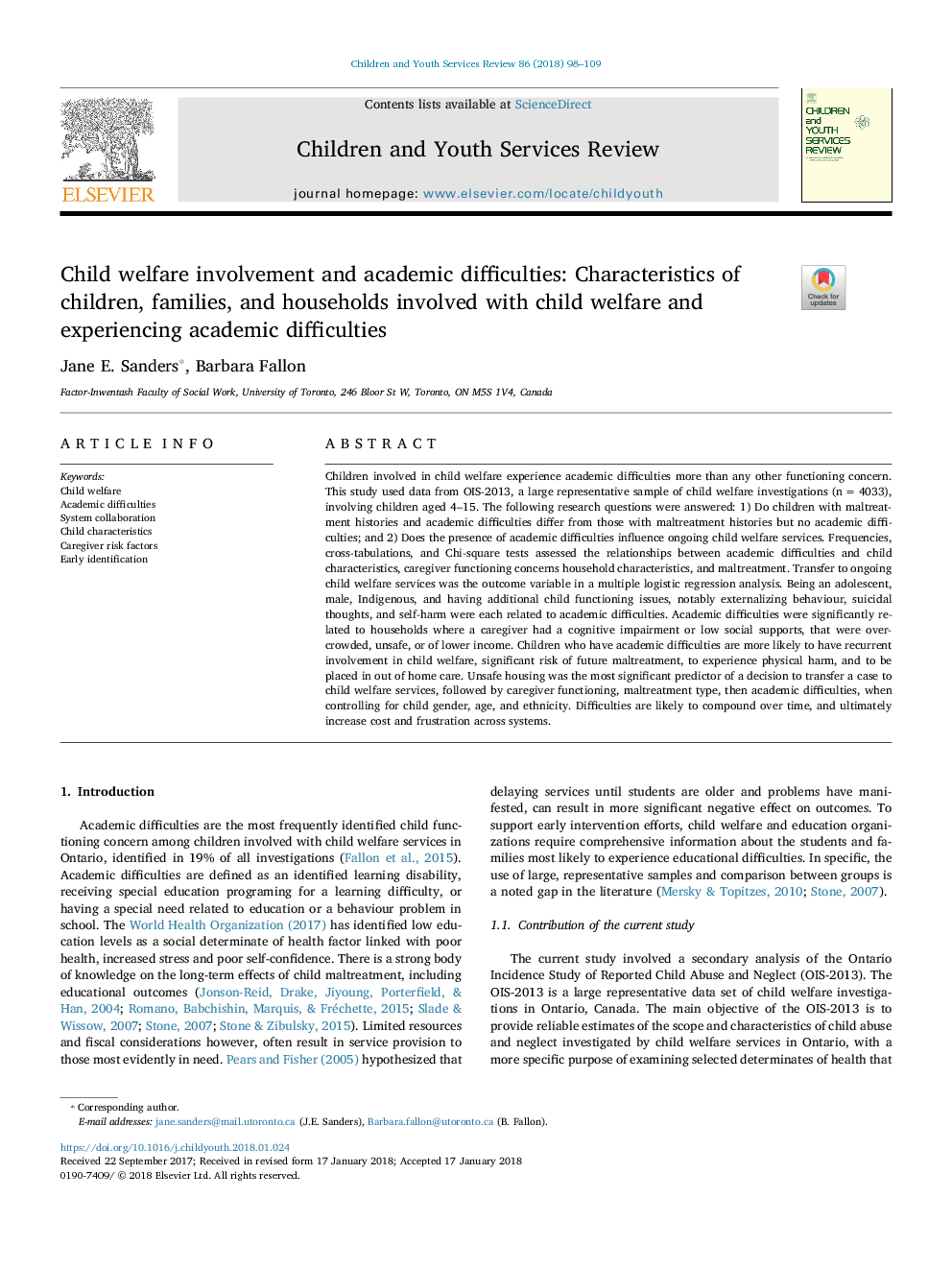ترجمه فارسی عنوان مقاله
مشارکت رفاه کودکان و مشکلات تحصیلی: خصوصیات کودکان، خانواده ها و خانوارانی که در رفاه فرزندان دخالت دارند و مشکلات تحصیلی دارند
عنوان انگلیسی
Child welfare involvement and academic difficulties: Characteristics of children, families, and households involved with child welfare and experiencing academic difficulties
| کد مقاله | سال انتشار | تعداد صفحات مقاله انگلیسی |
|---|---|---|
| 122559 | 2018 | 12 صفحه PDF |
منبع

Publisher : Elsevier - Science Direct (الزویر - ساینس دایرکت)
Journal : Children and Youth Services Review, Volume 86, February 2018, Pages 98-109
ترجمه کلمات کلیدی
رفاه کودکان، مشکلات تحصیلی، همکاری سیستم، ویژگی های کودک، عوامل خطر مراقبت کننده، شناسایی اولیه،
کلمات کلیدی انگلیسی
Child welfare; Academic difficulties; System collaboration; Child characteristics; Caregiver risk factors; Early identification;

